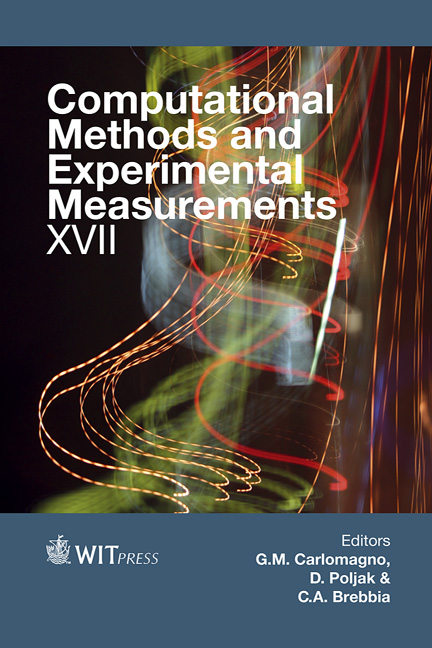The Design Of A Small-scale Multi-stage Desalination Plant Driven By The Exhaust Of Diesel Generators
Price
Free (open access)
Transaction
Volume
59
Pages
14
Page Range
419 - 432
Published
2015
Size
655 kb
Paper DOI
10.2495/CMEM150381
Copyright
WIT Press
Author(s)
R. Jammoul, O. A. El-Samni
Abstract
The present study provides an energy-saving design of a desalination plant that uses the waste heat of the exhaust of a diesel generator. The proposed model consists of a multistage flash (MSF) desalination unit in which the sea water is heated by the flue gases instead of steam. A mathematical model is derived to design the entire plant including the waste heat recovery heat exchanger and the MSF plant. The model is flexibly designed in order to deal with wide range of diesel generators rates and any number of stages of MSF. A database of diesel generator sets are imported including temperature of exhaust, gas flow rates and the back pressures for each set. Two test cases are carried out with two different salinity levels and diesel generator rates, results show that the amount of distilled water in kg/s can be correlated to the rate of diesel generator according to the second order polynomial: 0.54 + 4.1 × 10−3(kVA) + 4.1 × 10−6(kVA)2 in the case of brackish water and 0.36 + 2.7 × 10−3(kVA) + 3.1 × 10−6(kVA)2 in the case of seawater. The survey of power generation in Lebanon reveals that the waste heat from a diesel generator can be utilized to get around 100 million m3 of distillate water usable for drinking and for domestic use. This quantity can provide fresh water for more than 300,000 person/year. The performance of proposed plant is assessed during summer and winter conditions and the model can deal with any salinity ranges.
Keywords
desalination, waste heat, diesel generators, MSF





